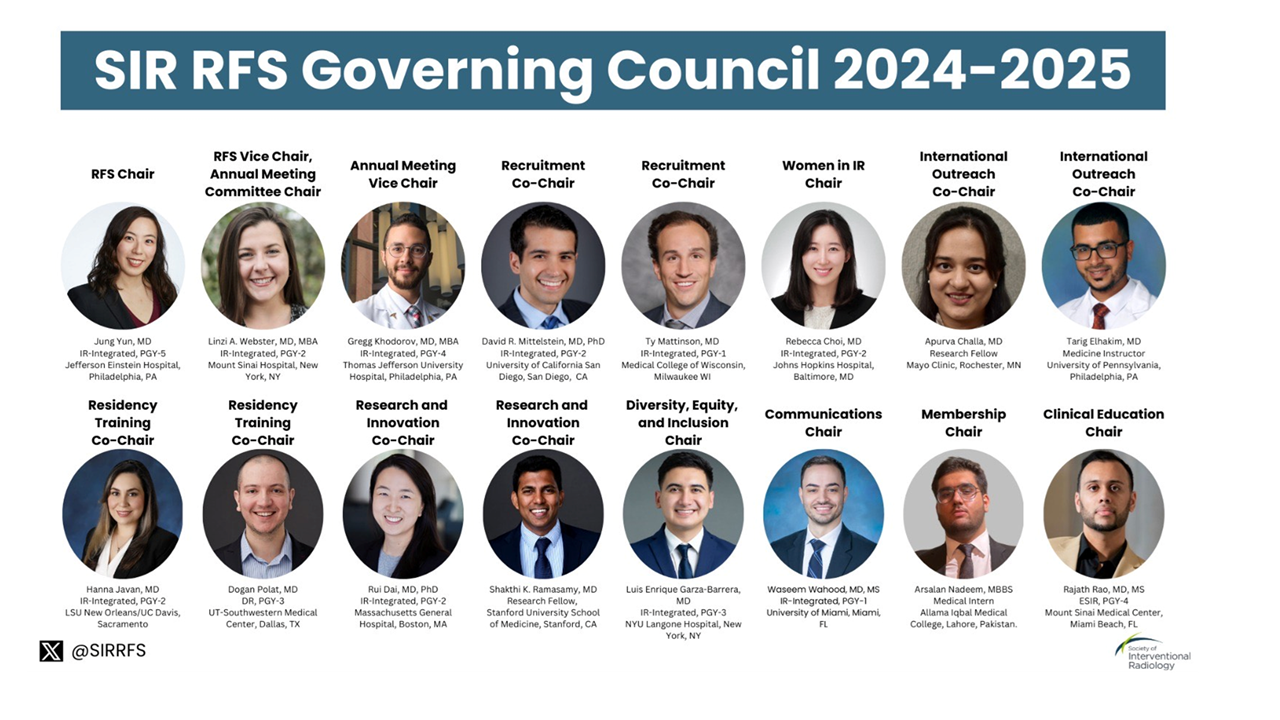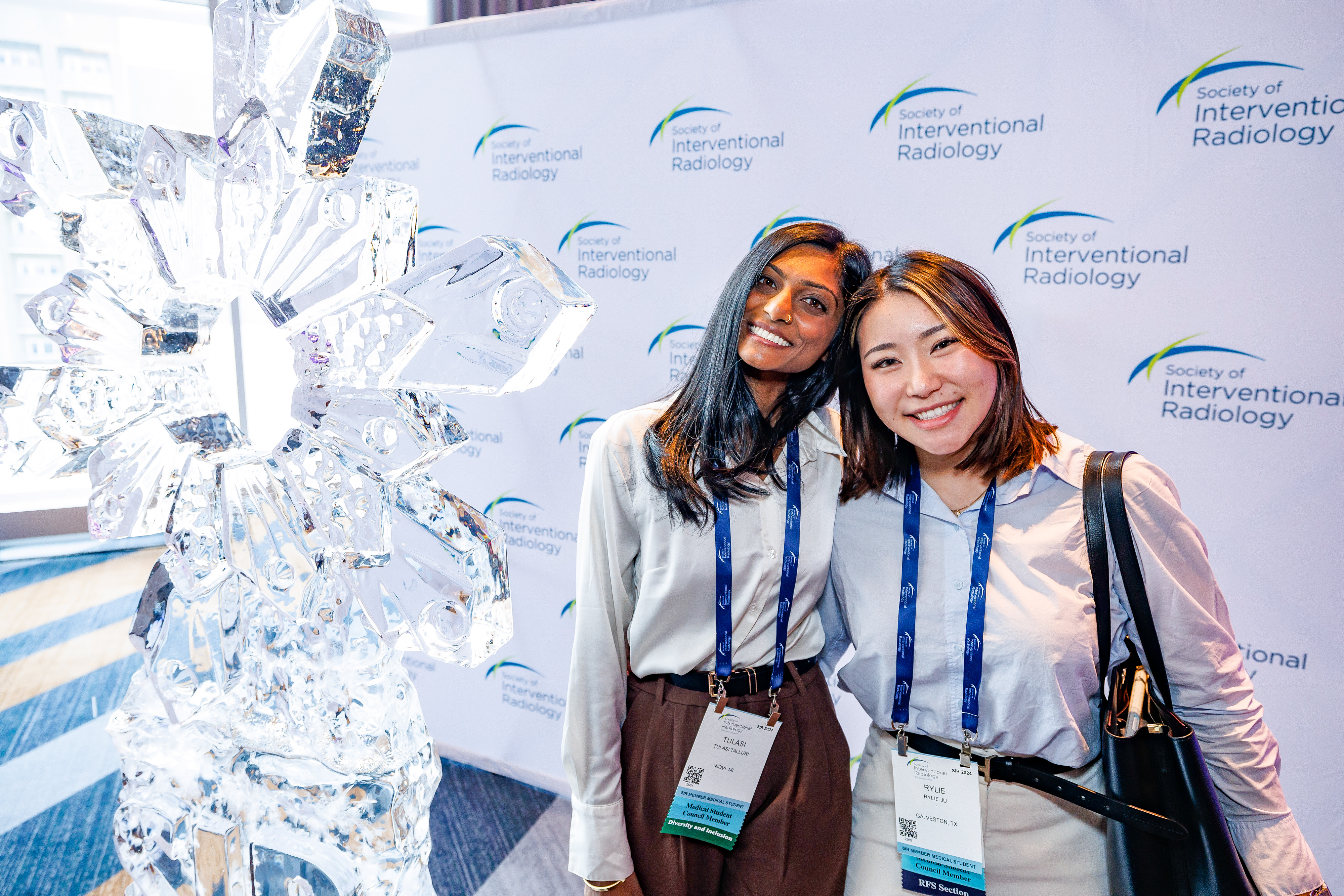Section
Resident, Fellow and Student (RFS)
RFS promotes the clinical paradigm of IR practice by introducing trainees to the specialty—focused on becoming disease experts and patient centered care.
Resident-in-training
Get more from your IR residency through the RFS section
 The RFS Section aims to promote interventional radiology among residents, fellows and medical students. We emphasize becoming disease experts and prioritizing patient-centered care.
The RFS Section aims to promote interventional radiology among residents, fellows and medical students. We emphasize becoming disease experts and prioritizing patient-centered care.
Our goals for the RFS section:
- Advocacy: Represent residents, fellows and medical students in their training as IRs.
- Patient focus: Promote the clinical model of IR, emphasizing service to patients.
- Knowledge expansion: Enhance our understanding of disease epidemiology, pathophysiology and evidence-based medicine to provide better longitudinal care.
- IR residency support: Advocate for the development of resident-, fellow- and medical student-driven clinics.
- Recruitment: Attract passionate individuals to advance IR and enhance patient care.

2024–2025
RFS Governing Council
- Jung Hyun Yun, MD, RFS chair
- Linzi Webster, MD, RFS vice chair, Annual Meeting co-chair
- Gregg Khodorov, MD, Annual Meeting co-chair
- Rajath Rao, MD, RFS clinical education chair
- Waseem Wahood, MD, RFS communications chair
- Luis Garza-Barrera, MD, diversity, equity and inclusion chair
- Tarig Elhakim, MD, international outreach co-chair
- Apurva Challa, MD, international outreach co-chair
- Arsalan Nadeem, MD, RFS membership chair
- Rebecca Choi, MD, Women in IR chair
- Dogan Polat, MD, IR residency training co-chair
- Hanna Javan, MD, IR residency training co-chair
- David Mittelstein, MD, PhD, recruitment co-chair
- Ty Mattinson, MD, recruitment co-chair
- Dui Dai, MD, research and innovation co-chair
- Shakti Ramasamy, MD, research and innovation co-chair

2024–2025
Medical Student Council
- Anna Hu, MS4, MSC chair
- Ishwarya Sivakumar, MS4, MSC clinical education chair
- Arvind Dev, MS3, MSC communications chair
- Chinedum Nkemakolam, MS4, diversity, equity and inclusion chair
- Samad Ashraf, MS3, reserves chair
- Omar Abdalla, MS4, biodesign and innovation chair
- Hossam Zaki, MS3, MSC webmaster

Volunteer to serve
SIR provides opportunities for residents, fellows and students to share knowledge and experiences through volunteering and networking.